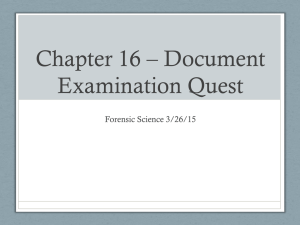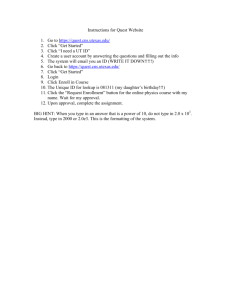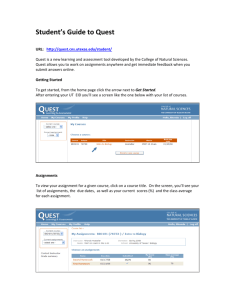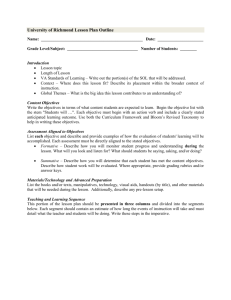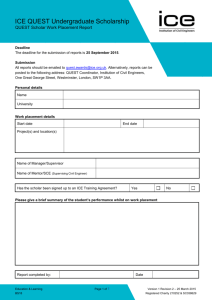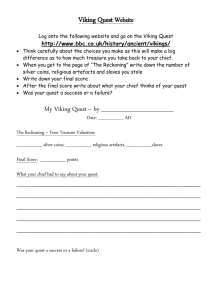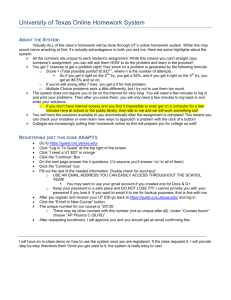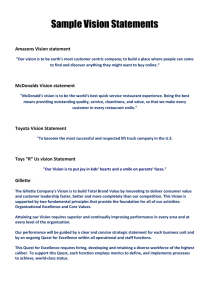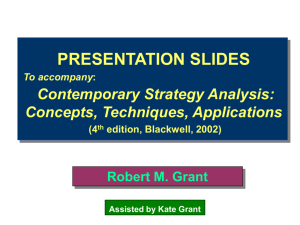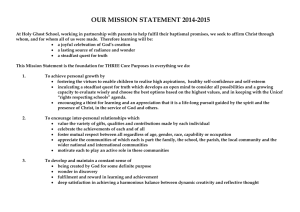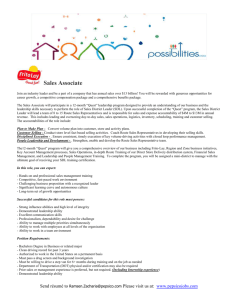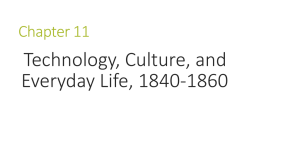How to use Interact
advertisement
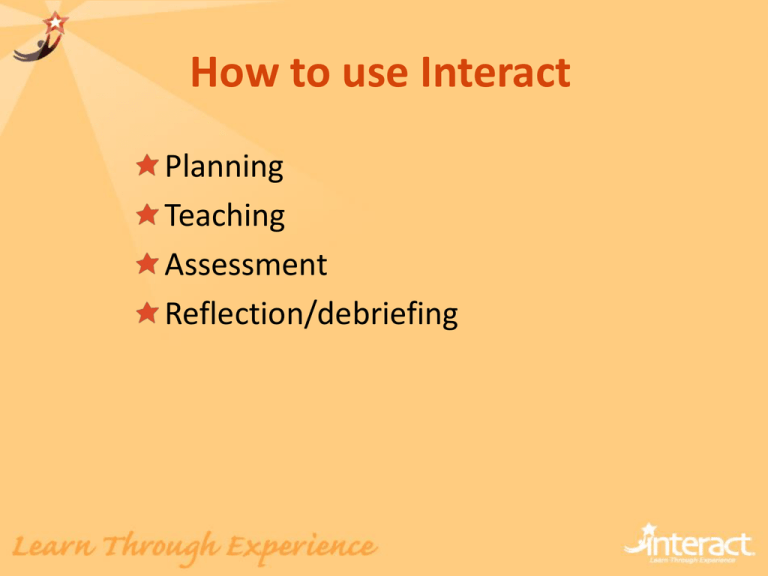
How to use Interact Planning Teaching Assessment Reflection/debriefing Demonstration Unit Illustrating slides are from: Math Quest Grades 4–9 Planning Prioritize your teaching goals. Are they: to reinforce recent general topic knowledge? to authentically assess student understanding of the overall or of a specific topic? to teach a general topic? to teach a specific sub-topic? Planning Read the Overview to match your teaching goals with each segment’s: goals methodologies student work extension activities Planning Decide if you will include: the entire six week unit competitive team elements the grade-level, above or below grade level options Planning Check the detailed unit time chart to calculate class time needed for your goals. Adapt the suggested schedule to your needs. Planning: Set Up Use the Set Up Directions to: • learn effective student grouping • plan ahead for differentiation • assign student roles Planning: Set Up Use the Set Up Directions to prepare: • student handouts • student folders/portfolios • materials needed Teaching: Daily Directions Each day details: • handouts and materials • step-by-step procedures Teaching: Daily Directions Teaching Tips in the margins of the teacher’s guide provide handy implementation suggestions. Teaching: Daily Directions Math Quest provides tiered, scripted lessons for six problem solving strategies. Each can be used alone or in sequence. Teaching: Daily Directions Optional and Enrichment Activities for differentiation are provided each day to: add to the daily directions modify the daily directions replace the daily directions Teaching and Assessment Guiding rubrics should be given to the students at the start of a task and discussed within groups. Teaching: Math Quest As student groups purchase supplies, they gain experience in planning, record keeping and basic math. Students immediately take ownership of their learning experience! Teaching: Math Quest Fate cards drawn each day add chance and excitement. Unpredictability is just like life, adding authenticity. Teams may gain, lose, stay the same or have humor added to their quest. Assessment: Rubrics Rubrics take the guess work out of authentic assessment for teachers and students. Assessment: Formative Formative assessments can be quickly given using additional questions (and answer keys) provided. Assessment: Authentic Multiple intelligences and student interests are addressed with problem creation assignments. Assessment: Traditional Traditional tests demonstrate student learning and provide experience for standardized tests. Assessment: Culminating Wrap up the unit with a special activity—an awards ceremony for winning teams or a competition with a neighboring classroom—to give a sense of accomplishment and mastery, and keep the fun in learning. For more ideas visit our online community at http://we.teachinteract.com Call or email: rep@socialstudies.com 310.839.2436
